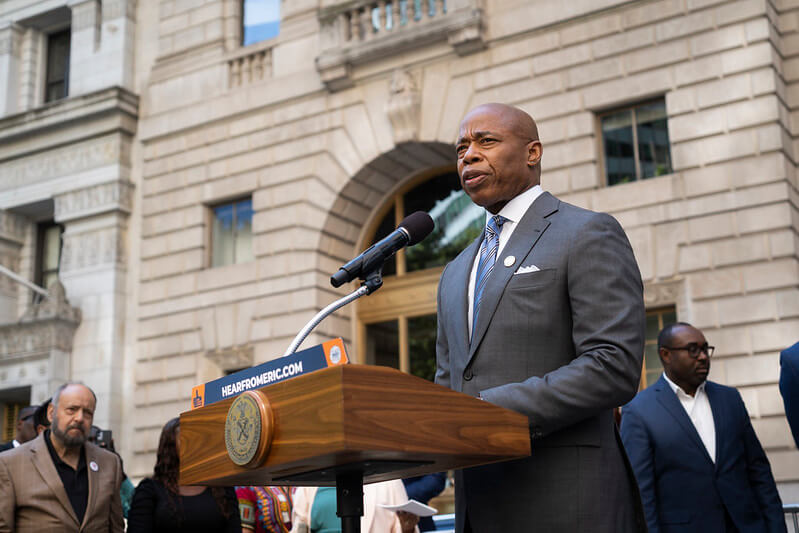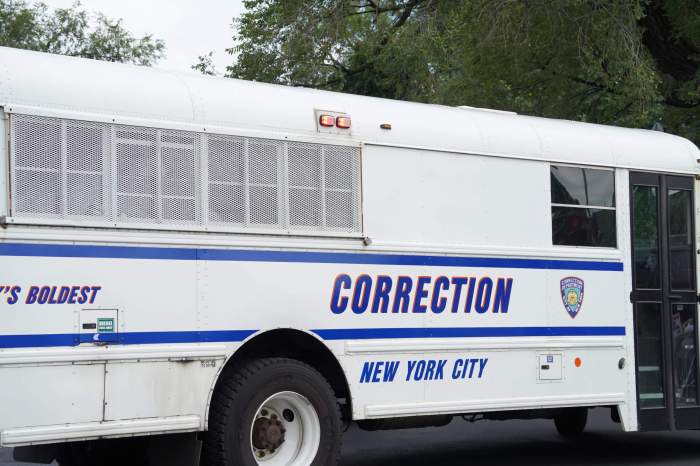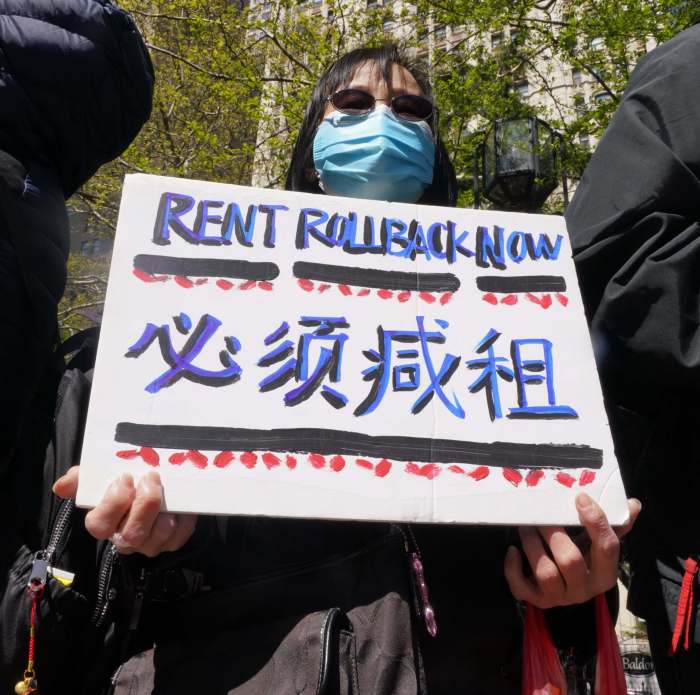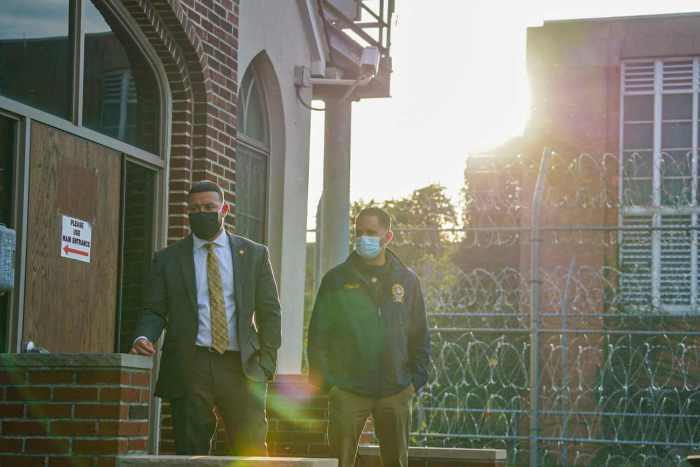Homeless advocates penned a letter to a Manhattan Supreme Court judge opposing Mayor Eric Adams’ recent legal motion calling for the suspension of the city’s decades-old right-to-shelter law amid the ongoing migrant influx.
The letter, sent last Thursday and released Tuesday, comes in response to Adams last week filing a court motion to exempt the city from its legal mandate — established by the 1984 Callahan v. Carey consent decree — to provide shelter to single adults and adult couples when it “lacks the resources and capacity” to do so. The mayor and top administration officials say they’re not seeking to abolish the right-to-shelter, but rather “clarity” from the court that would give them more “flexibility” in finding suitable housing for tens of thousands of migrants.
Over 70,000 asylum seekers have gone through the city shelter system’s intake centers over the past 13 months, with more than 45,000 currently living in its facilities.
But, in their missive, the Legal Aid Society and the Coalition for the Homeless — both frequent critics of how the Adams’ administration has handled the migrant crisis — said the mayor’s motion would “eviscerate” the long-standing protections and leave migrants and homeless New Yorkers to sleep in public spaces. The letter was written by Legal Aid staff attorney Joshua Goldfein.
“Rather than propose a narrowly tailored request to temporarily modify particular standards in the Judgment that they believe are inhibiting their ability to respond to the recent influx of migrants into New York City, Defendants [the administration] have proposed to eviscerate the bedrock legal protections in the Judgment and make it completely unenforceable,” Goldfein wrote. “Doing so would relegate vulnerable people, longtime New Yorkers and recent migrants alike, to sleeping in public and unsafe spaces: on sidewalks, in parks, in the transit system, or returning to homes with people who have harmed them.”
The mayor’s office did not respond to requests for comment by publication time.
New York’s right-to-shelter is unique among American cities and has withstood numerous attempts by past mayoralties to change or eliminate it.
The groups argue that if the consent decree is altered in the way Adams’ office is seeking, there’s nothing to stop the administration from saying it never has the resources or capacity to provide shelter to those seeking it, thus completely eroding the protection.
“City Defendants’ proposed modifications to the Judgment … would only obligate the city to provide shelter when there are adequate “resources and capacity,” which City Defendants could then assert they are unable to allocate at any time,” the letter reads.
After filling its homeless shelter system nearly to capacity and erecting over 150 emergency shelters, the mayor’s office says a recent surge of new arrivals spurred by the expiration of Title 42 — a federal rule that limited migration — left it with no choice but to seek changes to right-to shelter.
Goldfein, however, said the administration’s contention that it lacks the ability to shelter any more individuals doesn’t hold water. That’s because the city didn’t have enough resources to accommodate everyone seeking shelter when the consent decree was first issued and had to build the capacity in order to meet its new legal obligation.
“When the Judgment was first negotiated, City Defendants did not have adequate capacity in the existing shelter system to shelter all Class Members, but they created that capacity, and they have continued to do so for over 40 years, regardless of the level of demand,” Goldfein wrote.
Goldfein said the groups have given the administration a list of recommendations they believe would ease pressure on the city’s overburdened shelter system without jeopardizing the Callahan decision. Those include expanding access to city housing vouchers, filling vacant staff positions to combat discrimination against voucher holders and process applications more quickly and putting more funding into legal services to help migrants with their asylum applications.
The administration has started to implement some of those recommendations, they said, which has led to a recent decline in the Department of Homeless services shelter census.
The mayor, however, opposes a package of City Council bills passed last week that would expand eligibility for CityFHEPS housing vouchers and may still veto the legislation. Nevertheless, the council could then override his objection, as it passed all four bills by a veto-proof majority.
Goldfein concluded the letter by noting the groups would like Adams to drop his legal motion and come up with solutions together.
“Rather than proceed with a motion, we believe it would be helpful for the parties to meet and confer in an effort to avert the need for this litigation,” the letter read.




































